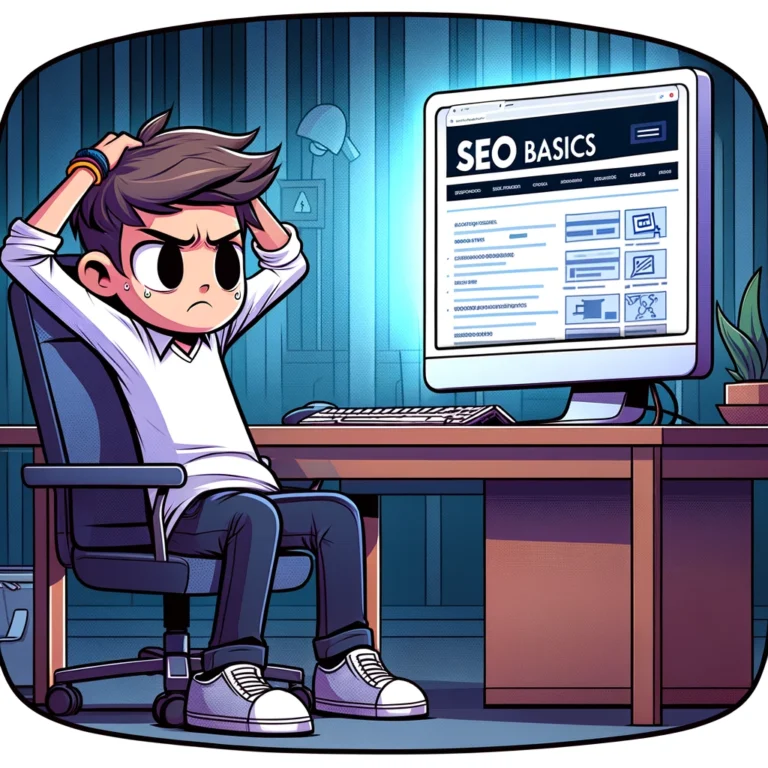In the digital age, the importance of search engine optimization (SEO) cannot be overstated. SEO is the art and science of making your website more visible and attractive to search engines like Google. One of the most critical aspects of modern SEO is understanding semantic search—how search engines use it to process and interpret the information on your website.
What is Semantic Search?
Semantic search refers to the process by which search engines not only analyze the keywords on a page but also understand the context and intent behind those words. This allows them to deliver more accurate and relevant results to users. Instead of focusing solely on matching exact phrases, semantic search examines the relationships between words and phrases on the web.
For example, if you search for “tips to grow tomatoes,” a search engine using semantic search technologies will look for pages that not only include specific words like “tips,” “grow,” and “tomatoes” but also associated terms and concepts such as “gardening,” “plant care,” and “best soil for tomatoes.”
Why is Semantic Search Important for SEO?
As search engines evolve, they increasingly prioritize the user’s search intent and the overall relevance of content. This shift means that traditional SEO tactics like keyword stuffing (overloading a web page with keywords in an attempt to manipulate a site’s ranking) are no longer effective and can even harm your site’s ranking. Semantic search compels content creators to think more about the quality and context of their content, focusing on creating valuable information that addresses the user’s needs.
How to Optimize for Semantic Search
Optimizing for semantic search involves several key strategies that focus on enhancing both the breadth and the depth of your content. Here’s how you can start:
1. Focus on Topics, Not Just Keywords
Instead of creating a list of keywords, think about the broader topics that your audience is interested in. Develop content that covers these topics comprehensively. Use related terms and synonyms naturally in your content to help search engines understand the context better.
2. Use Structured Data
Structured data is a standardized format to provide information about a page and classify the page content. If you’re talking about a book review, structured data helps tell the search engine that this is a book review, who the author is, and what the rating is. This not only helps search engines understand your content but can also lead to richer search results, like featured snippets or knowledge graphs, which can boost visibility and click-through rates.
3. Improve User Experience
Search engines take cues from how users interact with a site. Sites that are easy to navigate, have fast load times, and feature engaging content can achieve higher rankings. Ensure your website is mobile-friendly, use clear headings, and optimize your site’s loading speed to improve the user experience.
4. Create Comprehensive Content
Develop content that provides in-depth information about your topics. Use various content types such as text, images, videos, and infographics to cater to different user preferences. Comprehensive content that satisfactorily answers user queries is more likely to gain visibility and higher rankings.
5. Build Topic Clusters
Instead of individual pages targeting single keywords, consider creating clusters of content that focus on related topics. This strategy involves selecting a broad topic and creating a pillar page that gives an overview of the topic. Then, you create related but detailed pages focusing on subtopics, linking all these pages together. This helps search engines easily crawl and categorize your content in a structured manner.
Semantic search represents a fundamental shift in how search engines interact with online content. As a business or a content creator, adapting to semantic search is crucial for maintaining and improving your search engine rankings. Focus on the intent and context of your content, and strive to create an engaging, user-friendly website. By doing so, you’ll not only satisfy the algorithms but also provide valuable content to your audience, which is the ultimate goal of SEO.

The Role of AI and Machine Learning in Semantic Search
The advancement of artificial intelligence (AI) and machine learning has significantly influenced the development of semantic search. Search engines use these technologies to understand and predict user intent more accurately. They analyze vast amounts of data from user interactions, such as click-through rates, time spent on a page, and bounce rates, to continually refine and improve their search algorithms.
How AI Shapes SEO
AI helps search engines understand the nuances of human language, making it possible to interpret the intent behind a user’s query. This capability enables search engines to deliver search results that more closely match the user’s needs, even if the exact keywords are not present in the content. For SEO, this means that the focus should be on answering questions and solving problems through content, rather than merely incorporating keywords.
Practical Tips for Leveraging AI in SEO
- Optimize for Voice Search: With the rise of AI-powered virtual assistants, voice search is becoming increasingly popular. Optimize your content for conversational language and question-based queries to cater to this trend.
- Understand User Behavior: Use analytics tools to track how users interact with your site and content. This data can provide insights into user preferences and help you tailor your SEO strategy accordingly.
- Content Personalization: AI can analyze user data and help personalize content for different segments of your audience. Personalization can lead to better user engagement and satisfaction, thereby improving SEO outcomes.
Building Authority and Trust Through Semantic SEO
Building authority and trust is crucial in SEO. Search engines favor websites that are seen as authoritative sources of information. Through semantic SEO, you can establish your website as a reputable source in your industry.
Strategies to Enhance Authority and Trust
- Publish High-Quality Content: Consistently create and publish well-researched and accurate content. Quality content is likely to be cited by other websites, increasing your site’s authority.
- Engage with Your Audience: Actively engage with users through comments, social media, and forums. This interaction not only builds community but also signals to search engines that your site is a valuable resource.
- Backlink Strategy: Focus on obtaining backlinks from reputable sites within your industry. Backlinks are a key indicator of trust and relevance to search engines.
- Regular Updates: Keep your content updated and relevant. Regular updates signal to search engines that your site is active and reliable.
Monitoring and Adapting to Changes in Semantic SEO
SEO is not a set-it-and-forget-it endeavor. It requires ongoing attention and adaptation, especially with the rapid advancements in technology and changes in search engine algorithms.
Keeping Up with SEO Trends
Stay informed about the latest in SEO by reading industry blogs, attending webinars, and participating in forums. Understanding the current trends will help you adjust your strategies in time to maintain or improve your search rankings.
Tools for Effective SEO Monitoring
Leverage SEO tools that help track your rankings, analyze backlinks, and monitor your site’s health. Tools like Google Analytics, Ahrefs, and SEMrush can provide valuable insights into your website’s performance and areas for improvement.
Conclusion
Embracing semantic search and integrating it into your SEO strategy is essential for success in the current digital landscape. By focusing on the quality and relevance of your content, structuring your site logically, and staying adaptive to new developments, you can ensure that your site not only survives but thrives in the ever-evolving world of search engines.
Incorporating these principles into your SEO approach will not only improve your visibility and rankings but will also enhance the user experience, making your website a preferred destination for your target audience.



